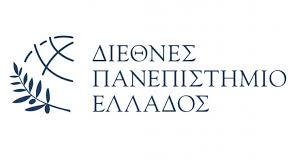This study covers two folds of a specific scientific and technical activity: an excavating project. The first fold is the legal framework (international, European and national) regarding the international cultural heritage and its protection and the second fold is the economic and managerial part of such an endeavour. The first fold is divided in two chapters: the first covers the international part of the study, while the second deals with the European and national legal framework. In the first chapter the evolution of the protection of the global cultural heritage through international agreements is presented. This presentation is divided in two periods : In the first period, starting with the first steps (Madrid – 1904 and Athens – 1931 Conferences), and ending with Venice Charter (1964), the Convention for the Protection of Cultural Property in the Event of Armed Conflict (the Hague Convention, 1954) with its two Protocols has a more detailed introduction. In the second period (the last fifty years), all the important international Charters, treaties and agreements are introduced, with the Convention concerning the Protection of World Cultural and Natural Heritage (The World Heritage Convention, 1972) and the UNIDROIT Convention on Stolen or Illegally Exported Cultural Objects (Rome, 1995) have the most extended presentation. Following, in the second chapter, the Council of Europe and its contribution is examined. The European Conventions and Treaties regarding cultural heritage (The Paris Convention - 1954, The Granada Convention – 1985, the European Convention on the Protection of the Archaeological Heritage (London, 1969, revised in Valletta, 1992) are presented, as well as the European Union regulation framework, which mainly focuses on the prevention of illegal export of cultural goods. The second chapter ends with the presentation of the relative Greek legal framework consisting of laws, presidential decrees and ministerial decisions. The cornerstone of this legal framework is the Law 3028/2002 "For the protection of Antiquities and Cultural Heritage in General", which is presented in more details.The second part of the study starts with a description of the different categories of an archaeological excavation and their possible scenarios, regarding the main actor and the provider of the financial resources. The two major types (systematic and rescue excavations) are described in details in two different chapters. The first category is presented, articulated in stages, steps and procedures. The presentation of the second one is based on the Memorandum of Understanding and Co-operation signed between the Ministry of Culture and Tourism and the Ministry of Infrastructures, Transportation and Networks in 2011 regarding the prerequisites, conditions and procedures for the implementation of archaeological excavations and research arising during (or due to) the construction of major public projects. The final chapter of the study provides the remarks and conclusions that arise from it. These are focused on the main subjects covered in the study, namely, the international legal framework, the effectiveness of the Greek legal and administrative environment, the priority of the archaeological research for the protection of archaeological sites and monuments over other public or private legal goods and the quality of co-operation between Archaeological Service and owners of technical projects. They are complemented by a discussion on three open issues, related to the management of the archaeological heritage in Greece.

